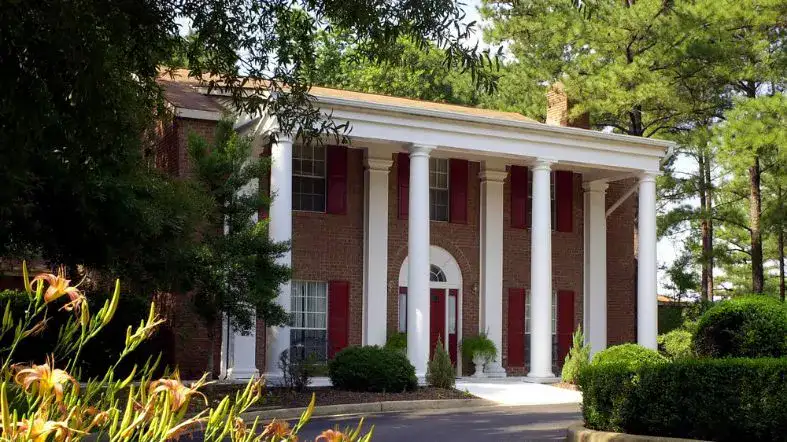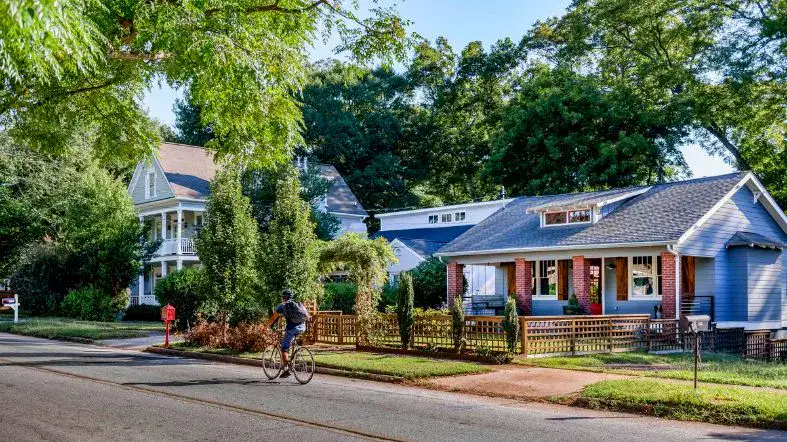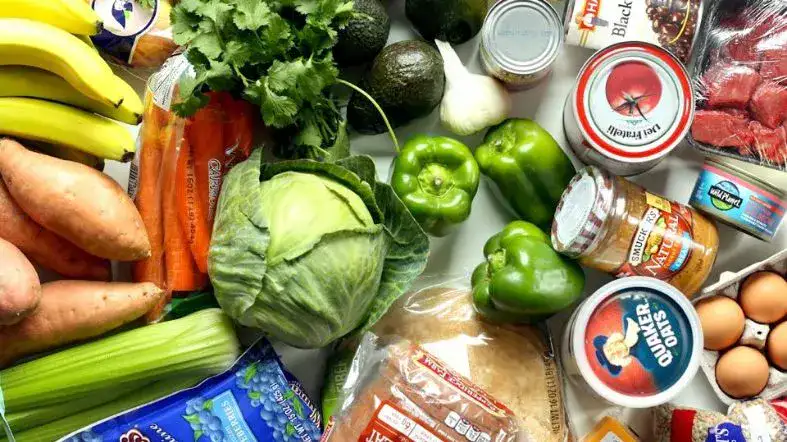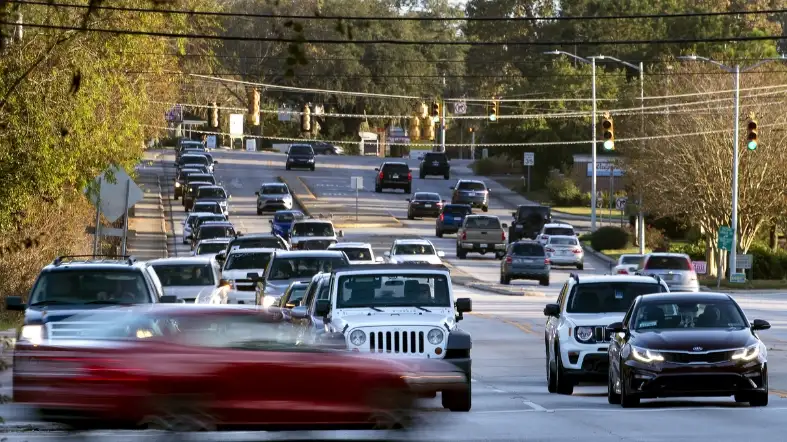Tuscaloosa, Alabama is a city with a rich cultural heritage and a thriving community.
It has an attractive job market, diverse recreational opportunities, and high quality of life, It’s no wonder that more and more people are considering Tuscaloosa as a place to call home.
In this blog post, we’ll take an in-depth look at the costs associated with housing, food, transportation, utilities, healthcare, and taxes in Tuscaloosa, Alabama.
By the end of this post, you’ll have a comprehensive understanding of what it costs to live in this dynamic and vibrant city.
Housing cost in Tuscaloosa
With its many attractions and amenities, Tuscaloosa is an ideal place to call home.

However, before making the move, it’s important to understand the cost of living in the area, especially when it comes to housing.
Here, we’ll take a closer look at the housing costs in Tuscaloosa, including variations based on geography and neighborhood.
Average Rental Prices in Tuscaloosa
The average rental prices in Tuscaloosa vary depending on the type of housing you’re looking for.
According to recent data, the average cost of a one-bedroom apartment in Tuscaloosa is around $800 per month.
Meanwhile, the average cost of a three-bedroom apartment is around $1,200 per month.
If you’re looking to rent a house, the average cost is around $1,400 per month.
However, these prices can vary depending on the location and amenities of the property.
Geographic Variations in Housing Costs
Housing costs in Tuscaloosa can also vary based on geography.
For example, downtown Tuscaloosa has some of the highest rental prices in the city, with one-bedroom apartments averaging around $1,000 per month.
On the other hand, neighborhoods like Taylorville and Holt have some of the most affordable rental prices, with one-bedroom apartments averaging around $700 per month.
Neighborhoods With The Most Affordable Housing

If you’re looking for the most affordable housing in Tuscaloosa, consider neighborhoods like Taylorville, Holt, and Brookwood.
These neighborhoods offer a combination of low housing costs and high quality of life.
With plenty of green spaces, friendly neighbors, and easy access to public transportation, these neighborhoods are an excellent choice for those looking to live in Tuscaloosa on a budget.
Buying Or Renting in Tuscaloosa
If you’re considering a move to Tuscaloosa, you may be wondering whether you should buy or rent a home.
There are pros and cons to both options, and the right choice for you will depend on your personal circumstances.
For example, if you’re looking for a more stable long-term living arrangement, buying a home may be the right choice for you.
On the other hand, if you’re looking for a more flexible living situation, renting a home may be the better option.
Groceries And Food: Eating Well On A Budget In Tuscaloosa

Tuscaloosa, Alabama is a city with a thriving food culture, offering residents a diverse range of dining options, from traditional Southern cuisine to international flavors.
However, food costs can vary widely depending on where you shop and what you buy.
In this blog post, we’ll take a closer look at the cost of groceries and food quality in Tuscaloosa.
Grocery Store Options in Tuscaloosa
Tuscaloosa is home to a number of grocery stores, including big chain stores like Walmart and Publix, as well as local specialty stores like The Fresh Market and Piggly Wiggly.
Each store offers different prices and selections, so it’s important to compare and choose the one that best meets your needs.
Average Cost of Groceries in Tuscaloosa
The average cost of groceries in Tuscaloosa varies depending on the type of store you shop at and the products you buy.
According to recent data, the average cost of a basket of groceries in Tuscaloosa is around $100 per week.
This includes items like bread, milk, eggs, cheese, and other essentials. Of course, these costs can vary widely depending on your dietary preferences and food habits.
Food Quality in Tuscaloosa
When it comes to food quality in Tuscaloosa, there are plenty of options available to residents.
From local farmers’ markets to specialty stores, there are plenty of sources for fresh, high-quality ingredients.
Additionally, Tuscaloosa is home to a number of excellent restaurants, ranging from casual eateries to upscale dining options, offering residents a diverse range of dining experiences.
Organic and Health Food Options
For those interested in organic and healthy foods, Tuscaloosa has a number of options available.
Stores like The Fresh Market and Whole Foods Market offer a wide range of organic and health foods, as well as supplements and wellness products.
Meanwhile, local farmers’ markets offer fresh, seasonal produce from local farmers.
Transportation: Getting Around Tuscaloosa With Ease

Tuscaloosa, Alabama is a city with a well-developed transportation infrastructure, offering residents a range of options for getting around.
However, transportation costs can vary widely depending on your mode of transportation and travel habits.
In this blog post, we’ll take a closer look at the cost of transportation in Tuscaloosa.
Public Transportation
Tuscaloosa offers a variety of public transportation options, including buses and shuttles.
The Tuscaloosa Transit Authority operates a number of bus routes throughout the city, offering residents an affordable and convenient way to get around.
Single rides on the bus cost $1.25, while monthly passes are available for $35.
Ride-Sharing Services
Ride-sharing services like Uber and Lyft are also available in Tuscaloosa, offering residents an alternative to traditional taxis.
Prices for ride-sharing services can vary depending on the time of day, demand, and location, but are generally more affordable than taxi rides.
Owning a Car
For those who prefer to own a car, Tuscaloosa offers a number of options for buying or leasing a vehicle.
According to recent data, the average cost of a new car in Tuscaloosa is around $30,000, while the average monthly payment is around $500.
Of course, these costs can vary widely depending on the type of vehicle you choose, your credit score, and other factors.
Gas Prices in Tuscaloosa
Gas prices in Tuscaloosa are relatively affordable, with the average price per gallon being around $2.75.
Of course, gas prices can fluctuate over time, so it’s important to keep an eye on local prices and plan accordingly.
Parking Costs in Tuscaloosa
Parking costs in Tuscaloosa vary depending on the location and time of day.
On-street parking in the city is generally free, while metered parking is available in some areas.
Parking in downtown Tuscaloosa can be more expensive, with rates ranging from $1 to $2 per hour.
Healthcare Costs in Tuscaloosa, Alabama

Tuscaloosa offers a variety of healthcare options for its residents, including both public and private facilities.
The cost of healthcare in Tuscaloosa can vary widely depending on your individual needs, insurance coverage, and the type of care you require.
On average, a doctor’s visit in Tuscaloosa costs around $150, while the average cost of a hospital stay is around $10,000.
Utility Costs in Tuscaloosa, Alabama
The cost of utilities in Tuscaloosa, including electricity, water, and natural gas, can vary depending on the size of your home, your usage habits, and other factors.
On average, monthly utility costs in Tuscaloosa are around $150, though this can vary widely depending on your individual needs.
Taxes in Tuscaloosa, Alabama
Tuscaloosa residents are subject to a variety of taxes, including state, local, and federal taxes.
The state sales tax in Alabama is 4%, while the local sales tax in Tuscaloosa is 2%.
Property taxes in Tuscaloosa are relatively low, with the average property tax rate being around 0.5%.
In addition, Tuscaloosa residents are subject to federal income taxes, which vary depending on your income and other factors.
FAQ
Are There Affordable Housing Options In Tuscaloosa?
Yes, there are affordable housing options in Tuscaloosa, including apartments and houses for rent or purchase.
However, the cost of housing in Tuscaloosa can vary depending on the neighborhood and other factors.
Is The Cost Of Groceries In Tuscaloosa Similar To Other Cities In Alabama?
The cost of groceries in Tuscaloosa is similar to other cities in Alabama, with prices for food and household items being comparable to the national average.
There are also a variety of grocery stores and specialty food markets in Tuscaloosa, offering a range of products at different price points.
How Does The Cost Of Healthcare In Tuscaloosa Compare To Other Cities In Alabama?
The cost of healthcare in Tuscaloosa is similar to that in other cities in Alabama, with an average cost for doctor’s visits around $150 and hospital stays around $10,000.
These costs are consistent with the general cost of healthcare in the state.
How Does The Local Sales Tax In Tuscaloosa Compare To Other Cities In Alabama?
The local sales tax in Tuscaloosa is 2%, which is comparable to other cities in Alabama. The state sales tax in Alabama is 4%.
Are Property Taxes In Tuscaloosa High Compared To Other Cities In Alabama?
No, property taxes in Tuscaloosa are relatively low, with an average property tax rate of around 0.5%.
What Are The Options For Public Transportation In Tuscaloosa?
Tuscaloosa provides various public transportation options including buses and shuttles operated by the Tuscaloosa Transit Authority.
The cost of a single ride on the bus is $1.25, and monthly passes can be purchased for $35.
Conclusion
In conclusion, Tuscaloosa, Alabama offers a variety of amenities and services for its residents, including affordable healthcare, utilities, and housing options.
While the cost of living in Tuscaloosa may vary depending on your individual needs and lifestyle, it is generally comparable to other cities in Alabama.
It offers a good balance of cost and quality of life. With its rich history, vibrant culture, and thriving community, Tuscaloosa is a great place to call home.
